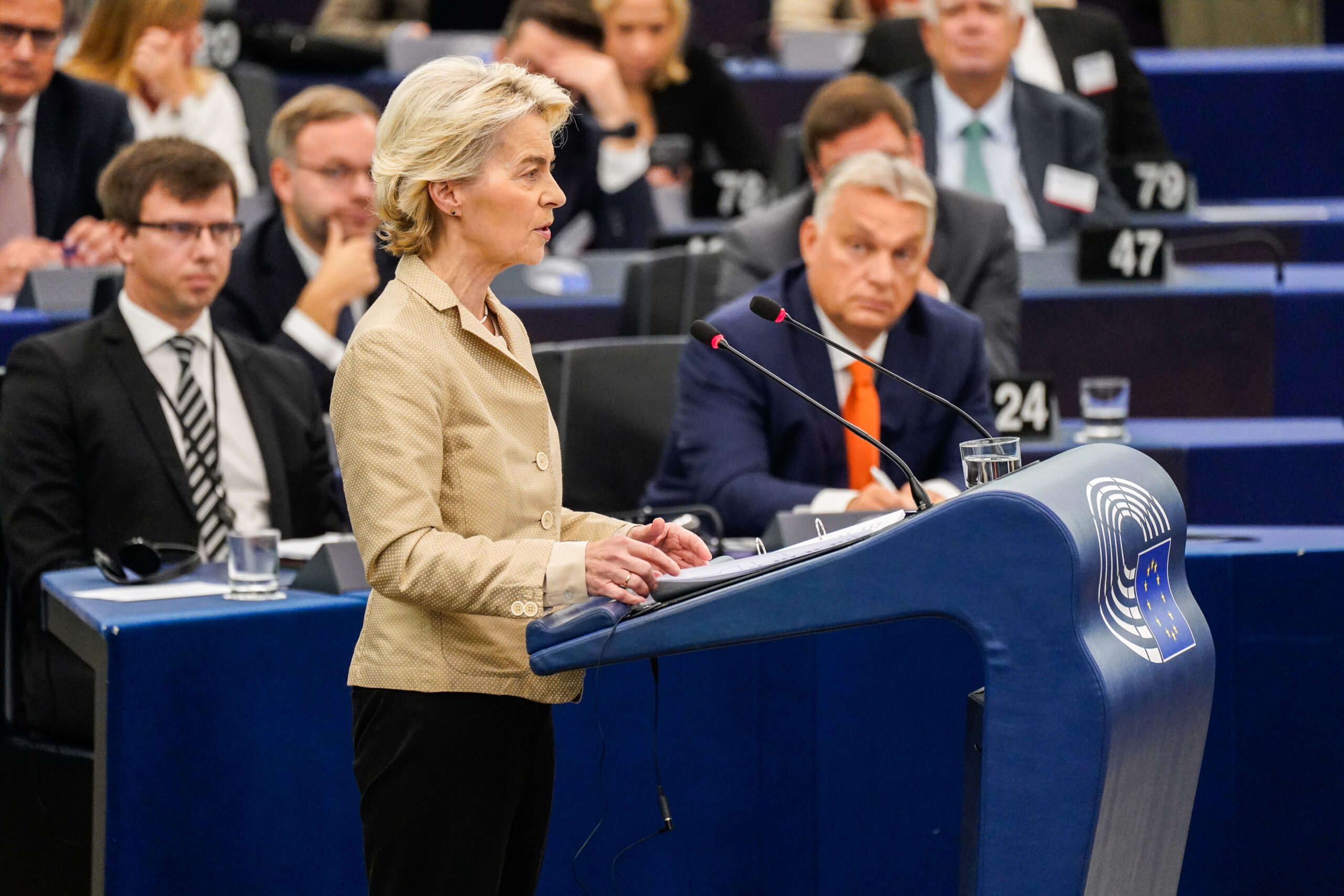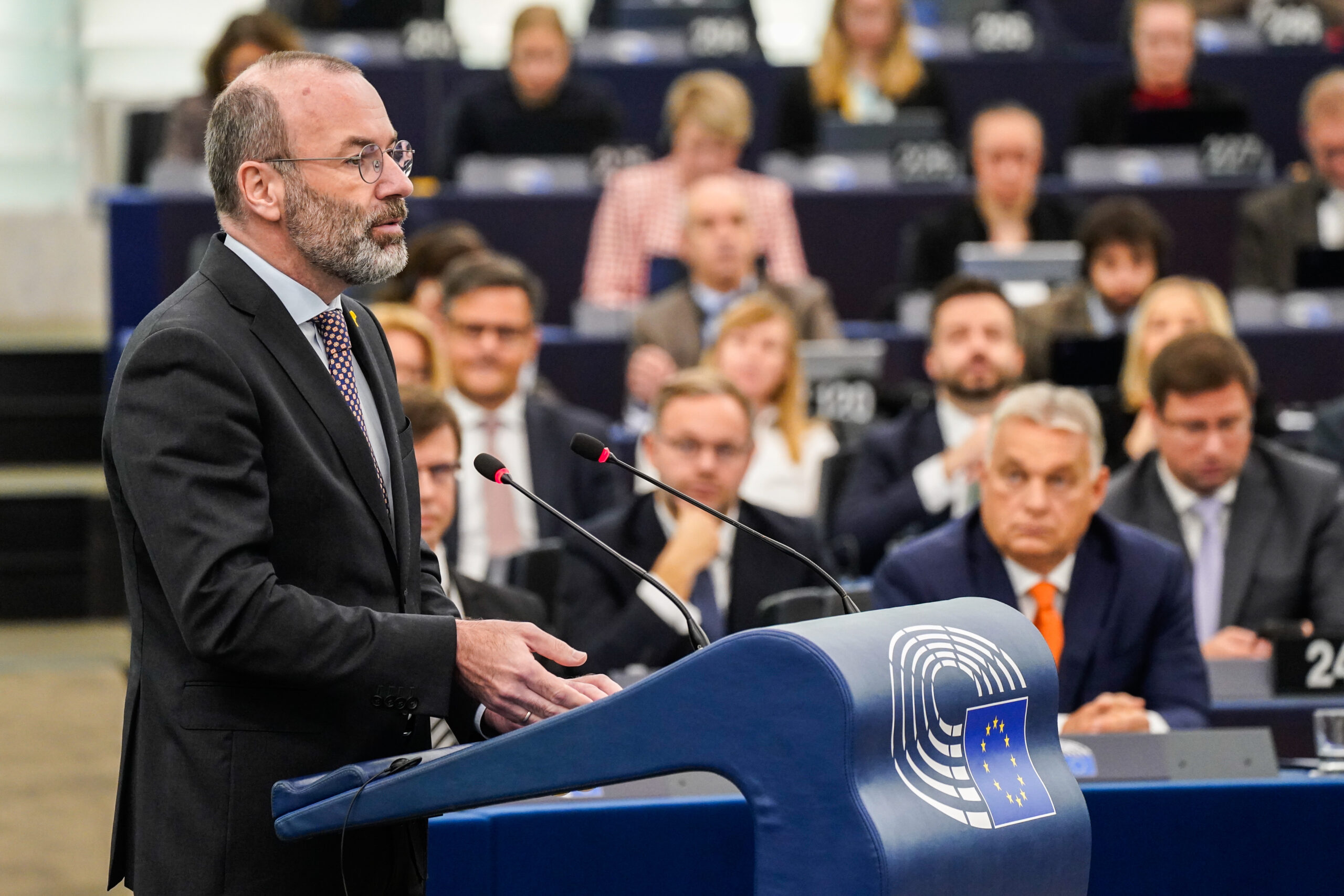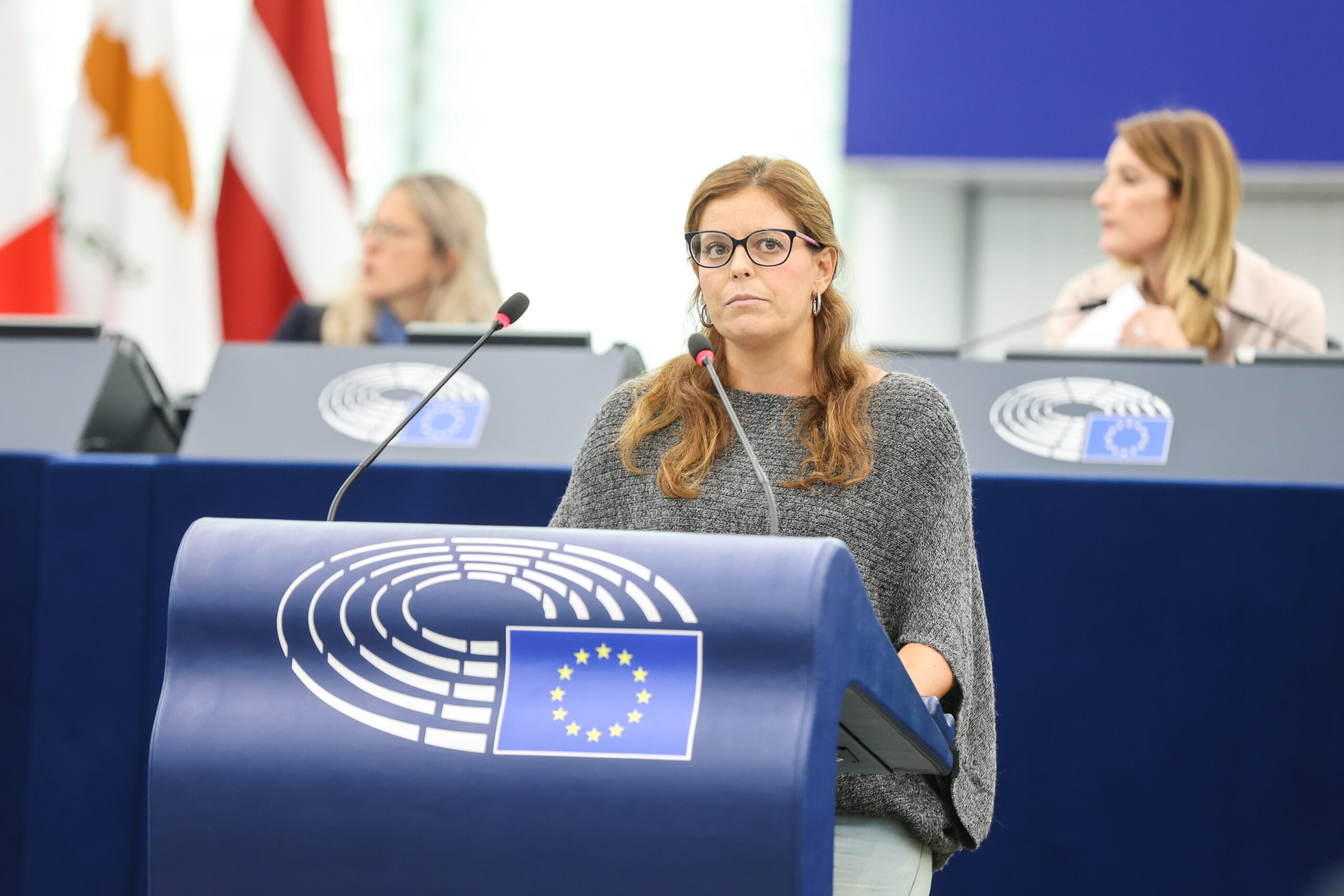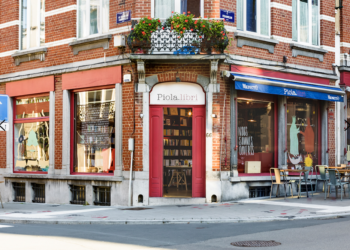From the correspondent in Strasbourg – It was supposed to be a fierce confrontation, and it was. Viktor Orbán will have come out of the EU Parliament with a headache, hit repeatedly by cross accusations from all political groups except the far right. The first to strike, immediately turning the debate over the priorities of the Hungarian presidency of the EU Council into a showdown between pro-European and sovereignist forces, was the president of the European Commission, Ursula von der Leyen, who accused Orbán of blaming Ukraine for Russia’s invasion, angrily urging him, “Would you also blame the Hungarians for the invasion by the Soviet Union in 1956?”
And think that Orbán, in his introductory speech, had wisely renounced polemics, assuring Budapest’s “constructive attitude” toward the Parliament in these remaining three months of its presidency on all 41 dossiers on which the EU Council and the Parliament have to confront each other in institutional trialogues. “The European Union must change, and the Hungarian presidency will be the voice of change,” the sovereignist leader announced, concluding his speech by declaring that “Hungarians continue to seek their home in the European Union.” But the tenant of the EU executive was waiting in the wings for him.

Von der Leyen attacked immediately on Ukraine: “There are still those who blame the Ukrainian people’s desire for freedom and not Putin’s thirst for power. There is no European language in which peace is synonymous with surrender and sovereignty is synonymous with occupation.” Having dealt the first blow, the EU leader moved on to the migration chapter, on which Budapest has recently requested an exemption to the common policy. “Everyone understood that migration is a European challenge that requires a European response. Now the Pact (on migration and asylum, ed.) must be implemented,” she clarified.
Looking straight into the eyes of the Magyar head of government, he challenged him again, recalling that last year Budapest released and expelled thousands of traffickers from its own country: “This is not about fighting illegal immigration, but throwing the problems to neighbouring countries.” Finally, von der Leyen pointed the finger at the visa facilitation for Russian citizens sought by Orbán and the presence of Chinese police forces on Hungarian territory. A “back door for foreign interference” in the European Union.
As if to reject the prime minister’s authority, von der Leyen then appealed to the “ten million Hungarians who can shape the future together with us.” Orbán called von der Leyen’s choice to immediately shift the focus of the debate to the Hungarian government “unfortunate” and rejected as “a humiliation” any analogy between the Soviet invasion of Hungary in 1956 and the ongoing conflict in Ukraine. And on unconditional support for Kyiv, the premier countered, “On the front, we are losing, and you are acting as if we are not.”
Only sovereignists defend Orbán. Weber: “No one wants to meet it, Hungary is isolated”
After the clash between von der Leyen and Orbán, the group leaders of the main European political families went on the attack. Starting with Manfred Weber, leader of that same European People’s Party of which Orbán’s party was a member until 2021. Weber said Orbán’s summer visit to Moscow “was never a peace mission, but a propaganda show between autocrats.” Budapest’s ambiguity about the Kremlin has a clear consequence, highlighted by Weber: “Today no one wants to meet with it; Hungary has been isolated.”

The fiercest accusations came from progressive leaders. For the Social Democrats’ group leader, Iratxe Garcia Perez, Orbán’s “false patriotism” is easily unmasked: the populist leader “criticizes the EU of threatening Hungarian sovereignty, but benefits from billions of euros that he distributes to his little group of oligarchs.” And he “justifies his inability to run the country by blaming Brussels.”
Valerie Hayer, president of the Renew liberals, called to “suspend Hungary’s voting rights in the EU Council.” At the same time, Terry Reintke, leader of the Greens, reiterated on behalf of the group that Orbán “is not welcome here.” A Bella Ciao chorus rang out from the European Left and Green benches on the sidelines of the Hungarian president’s speech.
If the two far-right groups— Patriots for Europe, a creature shaped by Orbán himself, and Europe of Sovereign Nations, the group revolving around Germany’s Afd—denounced the cordon sanitaire applied against them by the other groups and pledged loyalty to the Hungarian president’s sovereignist struggle, more ambiguous was the position of the European Conservatives and Reformists, the European Party group led by Giorgia Meloni. “We share several objectives of his program,” said group leader Nicola Procaccini: the most brutal punch against migrant people, the rethinking of the green transition, and the traditional family as the “primary cell of any political community.” At the same time, “as a friend,” Procaccini challenged Orbán for “not being aware of the most dangerous external enemy for the EU, the alliance between China, Russia, Iran, and North Korea, the antithesis of any Hungarian, European, Western patriot.”
New Orbán lunges on Salis: “She beat peaceful people with iron bars”
Among the many speeches in the Parliament, significant was that of the Hungarian MEP from the EPP, Péter Magyar, who, after 20 years of militancy in Orbán’s party, decided to found the Respect and Freedom party in open opposition to the premier and came second, with 31 per cent of the vote, at the European elections of June 2024. “Stop pointing the finger at Brussels; you have been ruling with unlimited powers for 14 years; you have had all the chances in the world to make our country better,” declared the main opposition leader. Who then proclaimed, “We will build a just, European, and livable Hungary. Never doubt, never be discouraged. We are not afraid, and time works to our advantage.”

Also taking the floor was Ilaria Salis, a Green and Left Alliance MEP who remained in preventive detention for 15 months in Budapest on charges of beating some Hungarian neo-Nazi militants and isis now free precisely because of her immunity as an MEP. “Hungary has become an illiberal and oligarchic regime, an ethnic state, a modern tyranny,” Salis said. To which the Hungarian prime minister then responded, “I find the accusations about the rule of law from those who have beaten peaceful people on the streets of Budapest with iron bars absurd.” Carlo Fidanza, head of the Fratelli d’Italia delegation, on the other hand, correctly stated that Salis is ‘indicted in Hungary for very serious violence’, as Italian MEP has never yet received a sentence of any kind.
The curtain on the unedifying show of ad personam attacks between Orbán and the MEPs and between MEPs among themselves was closed by the Hungarian Prime Minister, according to whom “the conclusions of this debate are that it is clear that Europe must be protected from you.” From those MEPs who “read reports financed by Soros.” Orbán then left the chamber amid applause from the far right and booing and howling from the rest of the chamber.
English version by the Translation Service of Withub







